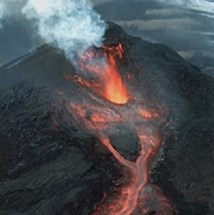“Earth and water: how natural disasters laid north Africa low.”
The Times headline, 16th September
 This quotation from Saturday’s Times implies that both the Moroccan and Libyan disasters are natural phenomena, but The Sunday Times corrected that misjudgement on 17th September, acknowledging the human cause of the latter. Natural disasters beyond human cause, such as volcanoes, or the Moroccan or Turkish earthquakes, can strike at any time, but it's fundamentally important that we do recognise when human failings are the cause of so-called ‘natural disasters’, and all the more so as our influence and impact on the environment becomes more and more significant.
This quotation from Saturday’s Times implies that both the Moroccan and Libyan disasters are natural phenomena, but The Sunday Times corrected that misjudgement on 17th September, acknowledging the human cause of the latter. Natural disasters beyond human cause, such as volcanoes, or the Moroccan or Turkish earthquakes, can strike at any time, but it's fundamentally important that we do recognise when human failings are the cause of so-called ‘natural disasters’, and all the more so as our influence and impact on the environment becomes more and more significant.
It is equally important that those disasters whose cause is wholly unrelated to human influence, such as movements in the earth's crust or meteorites falling from space, are not laid at humanity’s door. It is my view that they also should not be laid at the door of divine action: if you accept, as St Paul did, that creation is a continuing process ("We know that the whole creation has been groaning as in the pains of childbirth right up to the present time" [Romans 8:22]), as the universe evolves, shaped by the great laws of gravity, light and time. It’s then easier to understand how God stands alongside those who suffer rather than overseeing the process of destruction, which would be the logical sequitur in '7-day creationism'.
That was a lesson in logic that I came to understand as a consequence of the 2005 tsunami and its dreadful death toll, and this year, at both ends of the Mediterranean (in Turkey and Morocco), we have seen those evolutionary forces at work. The Libyan disaster, however, can be firmly placed in the lack of foresight and maintenance of the man-made dams whose collapse has brought such devastation.
What could be next, we might ask?
The writing is on the wall, to use that prophetic analogy based on Chapter 5 in the Book of Daniel from which our title is drawn: the impact of climate change getting out of control is immensely more far-reaching than the Libyan disaster. It will affect billions of people in the decades to come, and the warnings are clear for us all to see.
I'm referring to the news on Sunday that Antarctica has failed to recover such a large proportion of its sea ice this winter (that is, during our summer in the northern hemisphere): the shortfall is an area equivalent to five times the land mass of the United Kingdom. The Antarctic is a critical refrigerator for the earth's climate, and the BBC quoted a scientist with the National Snow and Ice Data Center as saying, “It's so far outside anything we've seen, it's almost mind-blowing”.
Much of the analysis behind these findings is drawn from the Intergovernmental Panel on Climate Change, which lies behind the Nature Climate Change report in October 2020. This anticipated sea level rise closest to the upper range of predictions, projecting a sea level rise close to 1 metre by 2100. This would expose between 44 and 66 million people to annual coastal flooding throughout the world, and they estimated that it would require $71 billion to be invested annually in mitigation and adaptation strategies. No doubt these would include some of the initiatives we discussed on 5th August 2019, including building a barrage across the Strait of Gibraltar.
So, in the light of that warning, let's return to the Libyan disaster in Derna. The Sunday Times reports that Field Marshall Khalifa Haftar, who controls eastern Libya, failed to take action to maintain and repair the two dams whose collapse resulted in the devastation. In the light of clear warnings, substantial budgets were allotted, but nothing was done. In other words, it was a human-initiated, not a natural, disaster.
And now the writing is similarly on the wall for catastrophic sea level rise and climate change over the decades ahead. Such an outcome would not be a repeat of the earthquakes in Turkey or Morocco, or the 2005 tsunami. It would be the direct result of our failure to take action when we have been told so clearly of the dangers to come.
However, just as Nicholas Stern predicted in 2006, the extent to which we discount the significance of future events is humanity's greatest Achilles' heel. Unless we introduce processes for long-term governance as we have called for on 9th May, we will continue to suffer from insufficient action as a result of short-term electoral positioning throughout the democratic world and the land-grabbing ambitions of autocratic dictators.
The catastrophic flooding of Derna should therefore be a wake-up call for us all — don't let climate change get out of control.
Gavin Oldham OBE
Share Radio

